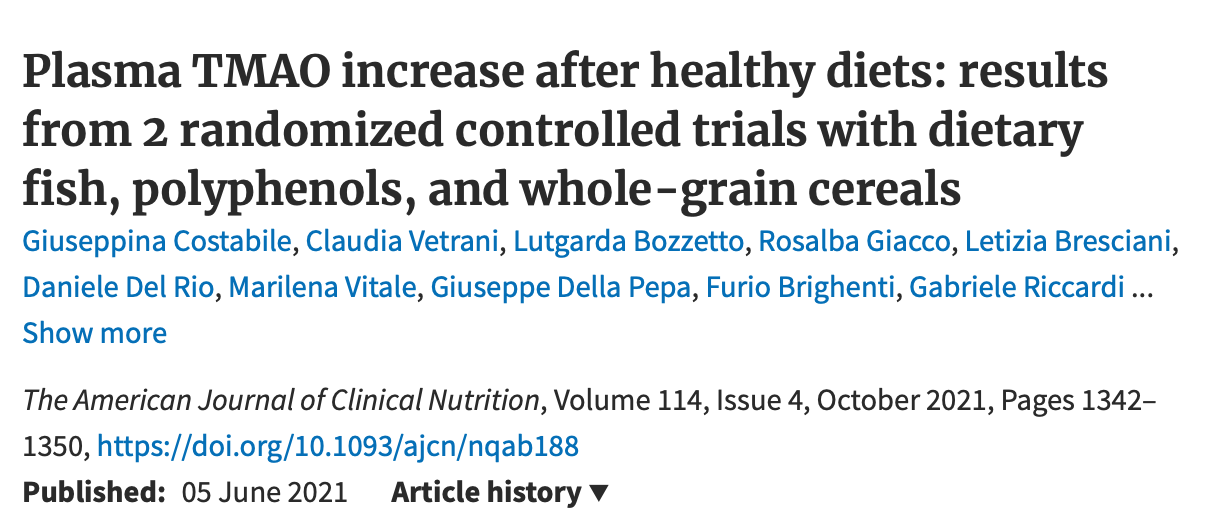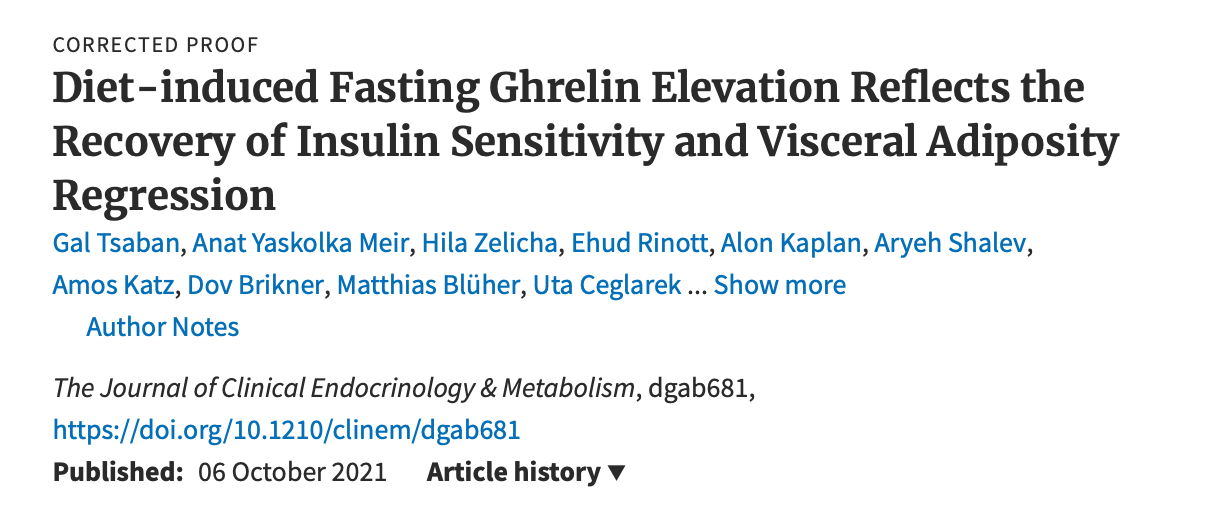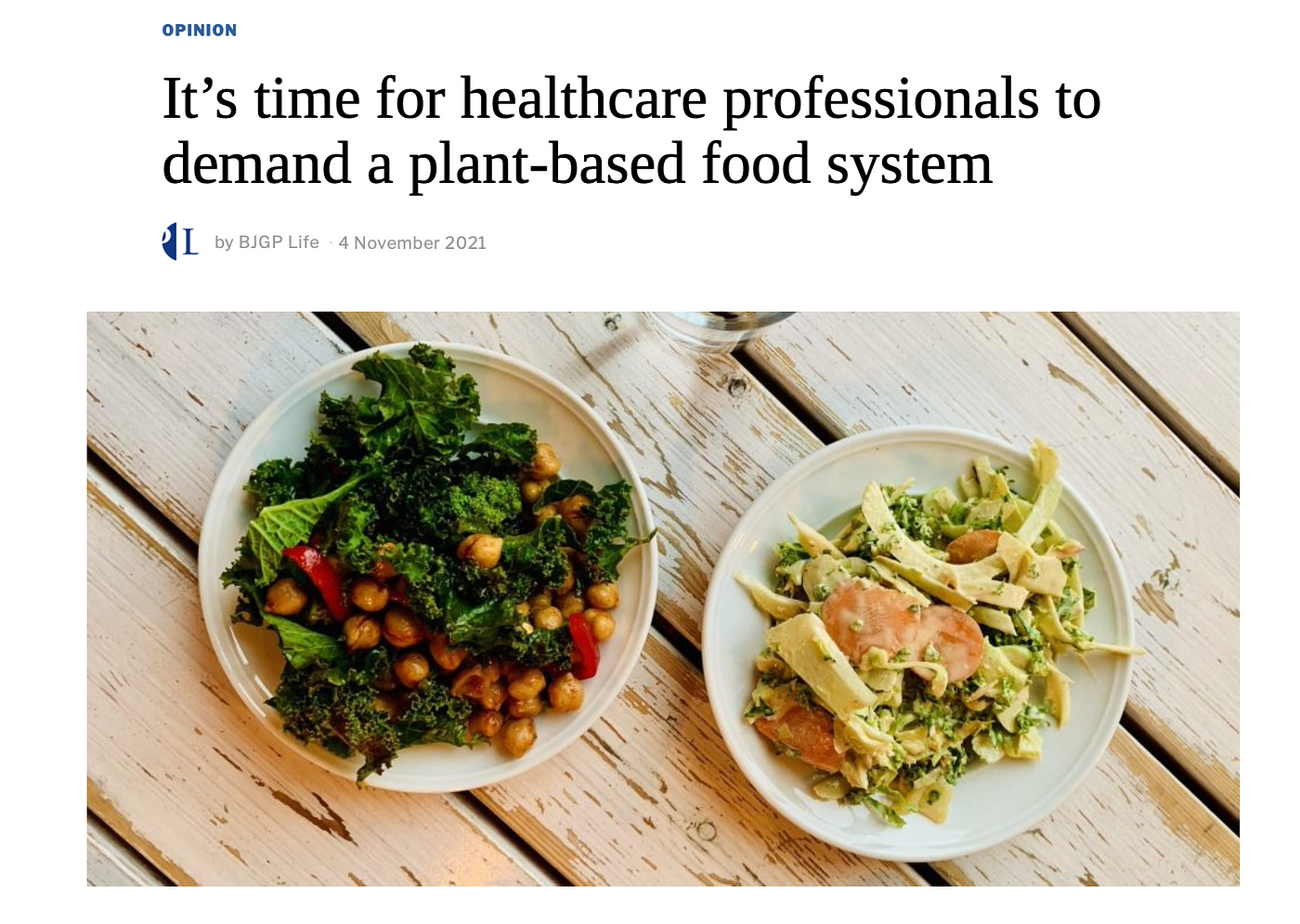A review of the week’s plant-based nutrition news 7th November 2021
This week I cover the impact of diet on TMAO and hunger hormones, the economic benefits of a lifestyle medicine approach and once again the urgent need to transition to a plant-based food system.

DOES TMAO CAUSE HEALTH PROBLEMS? The story around TMAO and health outcomes came to the fore in 2013 with a paper published in the New England Journal of Medicine demonstrating that carnitine and choline from meat and eggs is converted by gut bacteria to trimethylamine which is then absorbed and converted by the liver to trimethylamine oxide (TMAO). Higher blood levels of TMAO were found to be predictive of cardiovascular events. Subsequent studies showed that higher levels of TMAO were associated with an increased risk of heart failure, type 2 diabetes and renal failure and thus elevated TMAO is proposed to be one of several mechanisms by which an animal-based diet causes chronic disease.
This hypothesis has been called into question with mendelian randomisation analyses, which has shown that type 2 diabetes and renal failure cause elevated TMAO levels and thus the relationship with cardiovascular disease may be due to confounding or reverse causality. Having said that, genetically determined TMAO levels do appear to be associated with a higher risk of colorectal cancer. So where does that leave us? It seems the current body of evidence summarised in this review suggests that increased TMAO levels are the result (rather than the cause) of disease, but I suspect the story will continue to evolve.
The paper highlighted assesses TMAO levels associated with healthy diet patterns. TMAO is found in a preformed state in fish and can also be formed from betaine found in wheat bran, wheat germ and spinach. The consumption of these foods are, however, associated with better health outcomes. The aim of the present study was to evaluate, in controlled nutritional intervention studies, the effect on plasma TMAO concentrations of diets characterised by the consumption of healthy foods, including those rich in polyphenols and/or omega-3 fatty acids and whole grains.
Participants were from two randomised studies and were at high risk cardiometabolic diseases. 78 participants were from the Etherpaths study in which diets high in omega-3 fatty acids and/or polyphenols were investigated. Fish was the main source of omega-3 fatty acids and green tea, coffee, dark chocolate, olive oil and vegetables were the source of polyphenols. 61 participants were from the The HealthGrain study, which assessed the impact of whole grains versus refined grains.
The results showed that TMAO levels increased with fish and whole grain consumption but not with foods rich in polyphenols nor with meat and dairy consumption. Levels were measured at 8–12 weeks after the change in diet making this the first study to evaluate the impact of dietary interventions on TMAO levels. The authors conclude that these findings suggest that ‘plasma TMAO mainly reflects dietary intakes of healthy foods and, therefore, it is not a universally valid biomarker of cardiometabolic risk independent of the background diet’.
At the moment, I will keep an open mind about the relevance of TMAO levels as a marker of chronic disease risk. Concentrating on foods which are known to improve health outcomes is a better approach than focusing on biomarkers that have not yet been incorporated into risk calculators.

GREEN-MEDITERRANEAN DIET AND THE APPETITE HORMONE: We have heard for several years now that the Mediterranean (Med) diet is the healthiest diet. In reality, it is healthy because of the higher proportion of plant foods compared to most other diet patterns. Israeli researchers have come up with a modified Green-Med diet with more green vegetables, less red and processed meat and includes walnuts, green tea and Mankai (duckweed), so in essence it is more plant-based. Prior studies have shown a benefit for the Green-Med diet over the traditional Med diet for cardiometabolic markers and fatty liver.
The current study examines changes in ghrelin, the hunger hormone that stimulates appetite, in a randomised study of three diet patterns and the association with weight loss and other markers of cardiometabolic risk. Of note, lower ghrelin levels are generally associated with obesity and metabolic syndrome. The three diet patterns tested were healthy dietary guidelines, the Med diet or the Green-Med diet in 294 participants randomly assigned for 18 months.
The study found that all three diets induced elevation in fasting levels of ghrelin and that elevation of fasting ghrelin was associated with abdominal and visceral fat loss and improved insulin sensitivity. Those following the Green-Med diet had a greater (twice as high as the Med diet group) elevation in fasting ghrelin levels compared with the other two diet groups despite similar calorie restriction and weight loss. The authors suggest this may predict for better cardiometabolic health and may explain some of the benefits seen in the prior studies given that fasting ghrelin was associated with improved insulin sensitivity and reduction in visceral fat.
To me it seems a bit unnecessary to add more plants to the Med diet when we know that a mostly or entirely plant-based diet is associated with a number of health benefits. We also know that a vegan or plant-based diet can benefit appetite hormones. For example, this study measured levels of leptin, the appetite hormone, in people following an omnivorous, lacto-ovo or vegan diet and found lower levels in the vegan group and this was associated with less body fat. A further study has shown an increase in the gut hormones glucagon-like peptide -1 (GLP-1), amylin, and peptide YY levels after a plant-based meal compared to a meat-based meal, suggesting a better impact on satiety. In addition, a meat-based diet lowered Ghrelin levels when compared to a plant-based meal in one study.
We have recently helped Oatly develop a factsheet on the health benefits of a plant-based diet, which you can download here. It’s fully up to date and referenced.

THE ECONOMIC BENEFIT TO EATING WHOLE GRAINS: Whole grain consumption is associated with a number of health benefits, with reduction in a number of chronic conditions, including type 2 diabetes. This study from Finland used economic modelling utilising data from multiple national databases and published scientific literature to calculate the benefit of whole grain consumption for reducing the incidence of type 2 diabetes on a population level.
The study confirmed that just one serving of whole grains as part of the daily diet would reduce the incidence of type 2 diabetes at the population level and, consequently, the direct diabetes-related costs, when compared to people who do not eat whole grain foods on a daily basis. One serving of whole grains was estimated to reduce the risk of type 2 diabetes by 27% and two or more servings by 35%. Over the next ten years, the cost saving could amount to 300 million to almost one billion Euros in current value and this would be associated with a significant improvement in quality of life at a population level. At present, one third of Finns don’t even eat one portion of whole grains per day.
The cost of diabetes care is skyrocketing. In the UK 1 in 10 people over the age of 40 has type 2 diabetes, an illness that is virtually always preventable. The cost of diabetes care in the UK is astronomical. £1.5 million an hour or 10% of the NHS budget.

THE ECONOMICS OF A LIFESTYLE MEDICINE APPROACH: The American College of Lifestyle Medicine makes the case for a value-base approach to healthcare in this paper which shares the stories of four patients who have had dramatic health gains from an intensive therapeutic lifestyle approach, including a whole food plant-based diet. It’s well worth reading the four cases, which are inspiring and demonstrates what can be achieved. The authors make the case for prioritising clinical research into lifestyle medicine approaches, comparing this to conventional approaches of disease management and modelling economic cost savings to the individual and to society as a whole. I could not agree more.

ANIMAL AGRICULTURE AND THE CLIMATE CRISIS: As COP26 continues, the issue of animal agriculture has unfortunately still not been adequately addressed. The fact that beef, bacon and dairy were on the menu demonstrates the lack of commitment from the UK Government to transition to a sustainable plant-based food system. This is despite the enormous and overwhelming body of evidence supporting the urgent need to do so.
Just as COP26 was starting, the Lancet Countdown on health and climate change published its 2021 report. There is a lot of detail in it and none of it is good news. Focusing in on food, agriculture and health in section 3.5, it states that’s controlling greenhouse gas emissions from the food system is crucial to to limiting global warming, yet emissions continuing to increase. The report states, ‘Of this total, cattle products (mainly meat and milk) contributed 52% of global agricultural production emissions’. High income countries are contributing the most to these emissions given the higher consumption of meat and dairy. In addition, deaths due to unhealthy diets continue to increase with 9.6 millions deaths attributable to dietary factors in 2018. Diets in men tend to be less healthy than in women. Between 2017 and 2018, estimated deaths due to excess red meat consumption rose by 1·8% to 842 000.

IS A PLANT-BASED DIET MORE EXPENSIVE?: One of the barriers often cited to adopting a plant-based diet is the cost. This week we have another excellent paper from Marco Springmann and the Oxford Martin Programme on the Future of Food. The paper aimed to estimate the costs of healthy and sustainable diets around the world. The analysis included food costs from 150 countries and assessed the affordability of healthy and sustainable diet patterns, including flexitarian, pescatarian, vegetarian, and vegan. In addition, the cost of diet-related illness and diet-related impacts on climate change was factored in, a novel aspect of this study. The costing also took into account regional preferences for certain foods.
The results showed that the average cost of diets in 2017, including food waste by households, was $5.7 per person per day (range $2.2–9.7). In low-income and lower-middle-income countries, staple crops accounted for the greatest proportion of costs (33–35%), followed by legumes and nuts (11–27%), meat (11%), vegetables (9–14%), and fruits (9–12%). In comparison, in high-income and upper-middle-income countries, meat accounted for the greatest proportion of costs (32–34%), followed by staples (18%), vegetables (11–24%), and fruits (8–9%). Food waste accounted for around 30% of costs.
In high income and upper-middle income countries all dietary patterns, except for the pescatarian diets, were less expensive than current diets with the greatest reduction for vegetarian and vegan diets (22–34% reduction in cost). In lower-middle-income and low-income countries, all dietary patterns analysed were more expensive (18–45%). The diet-related costs of climate change and healthcare costs increased the average cost of current diets by 16% but taking into account projected cost of food and changes to diet by 2050, the climate and health impacts of diet was projected to increase the cost of diets by up to 50%. The projected rise in cost was much lower with vegetarian and vegan diets.
Overall, vegetarian and vegan diets focusing on whole grains and legumes were the most affordable, whereas pescatarian diets focused on fish, fruits and vegetables were the least affordable. Fish as a food group had one of the highest prices per calorie.
Overall, the findings confirm that in high and upper-middle income countries adopting vegetarian or vegan diet would not only be healthier and better for the planet, but would be less expensive for households. Thus government policy needs to incentivise these choices. In lower-income countries, development policies need to support the transition to a healthier more diverse plant-based diet and counter the current trends of shifting to a Western diet pattern that is harming both personal and planetary health.
The best news this week has been the election of Eric Adams as the first vegan Mayor of New York City. He has already made a big impact on increasing plant-based meals in the city and I am hopeful that at least in NYC, a plant-based diet will be front and centre of the health policy. As Brooklyn Borough President, Eric Adams had already started some amazing initiatives, including a plant-based lifestyle medicine programme at Bellevue Hospital under the directorship of the awesome Dr Michelle McMacken.
We are also trying to get the message out loud clear to health professionals in the UK and beyond. Read our most recent article in the British Journal of GP life magazine.

Please follow my organisation ‘plant-based health professionals UK’ on Instagram @plantbasedhealthprofessionals and facebook. You can support our work by joining as a member or making a donation via the website.
